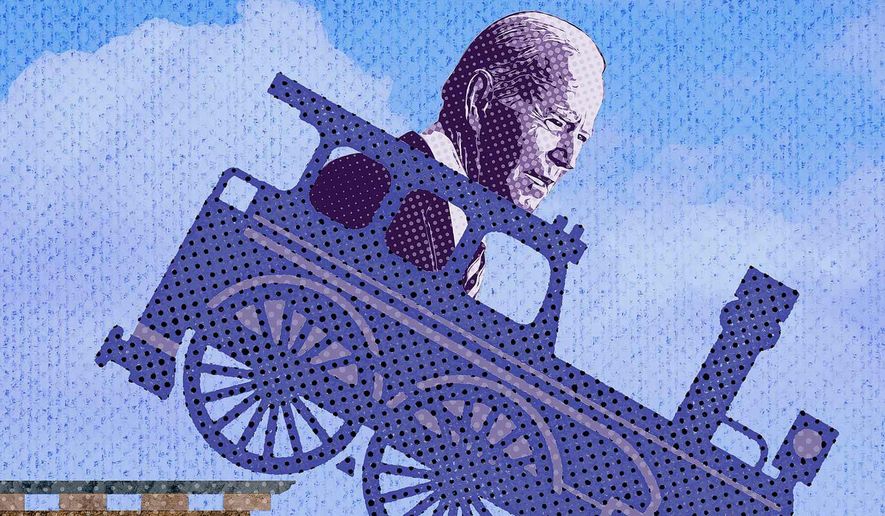OPINION:
Ordering Californians to buy electric cars isn’t enough. Golden State regulators’ next move will force rail shipping companies to switch to all-electric locomotives — even though, outside of toy train sets, the technology isn’t mature enough for such use.
A public comment period regarding the scheme is open between now and April 22. The Environmental Protection Agency will take these comments into consideration and review the impact the plan will have on shipping nationwide.
As with the automobile, battery-powered locomotives are not new. The first electric car was created in 1888, and the first electric train in 1842. The idea never caught on back then because these electric vehicles weren’t very good. The battery-powered train topped out at a feeble 4 miles per hour.
Then, as now, batteries can’t muster enough juice to haul 20,000 tons of commodities from one end of the nation to the other — at least not without replacing a single diesel locomotive with a number of expensive electric ones. Such concerns don’t matter to California bureaucrats with a compulsive need to signal they’re more environmentally virtuous than any other jurisdiction in the country.
If the EPA consents, California’s plan will outlaw in the state use of any train that is more than 23 years old unless it is classified as “zero emission” — that is, an electric train. This effectively bans diesel locomotives, requiring just about every rail shipping company in the country to replace perfectly good equipment with brand-new electric models.
They’ll also have to deal with red tape. Shipping companies would have until 2026 to register and comply with new record-keeping and reporting requirements. The regulations also specify that “for each locomotive operated in California, locomotive operators are required to deposit funds into a Spending Account.”
Forcing companies to divert the majority of their capital away from things like safety for the sake of satisfying the egos of West Coast liberals will drive up the cost of everything that makes its way to the store over a train track. With more than 160 million tons of cargo entering or leaving California in a year, the impact will be substantial.
A number of states — Colorado, Massachusetts, New Jersey, Oregon, Rhode Island, Vermont and Washington — have already adopted California emissions standards when it comes to heavy-duty vehicles such as trucks and buses. They are likely to follow suit with the diesel ban, creating a regulatory nightmare for interstate commerce.
California even insisted that its perennial high-speed rail project showcase the value of electric passenger trains to connect Los Angeles and San Francisco. Sixteen years and $11 billion after the boondoggle was approved, the state has produced only a set of half-built tracks between Madera and Shafter. Completing the original proposal might take an additional $100 billion and a decade — or more.
President Biden, a well-known aficionado of 19th-century transportation technology, recently chipped in $3.1 billion to help connect a city of 21,000 with a city of 68,000 using electric trains.
These people should not have custody of anyone’s taxpayer dollars. If the EPA approves the electric mandate, expect another financial train wreck to follow.




Please read our comment policy before commenting.